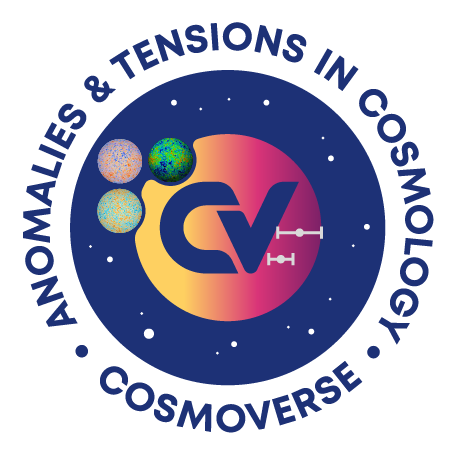“From Fundamental Physics to Data Analysis in Cosmology”
Venue: Mon-Repos, Corfu, Greece
Dates: The School will take place 13 May – 18 May 2024
CosmoVerseSchool@Corfu is the first School by the CosmoVerse COST Action and will centre on the interface of data analysis and fundamental physics in cosmology. Within CosmoVerse, this will feature the intersection of intersection of Working Groups 2 (Data Analysis in Cosmology) and 3 (Fundamental Physics) (see cosmoversetensions.eu/organisation/working-groups for more information). The School will cover lectures and training in the latest cosmology simulation code, together with the integration of new fundamental physics models and their use in these implementations.
Topics:
Cosmological tensions
Early Dark Energy
Neutrino cosmology
Horndeski theory
Data analysis and cosmological simulations
Machine learning in cosmology
Funding: The School has no registration for all participants. The CosmoVerse COST Action will provide funding (travel/subsistence) to a number of students in attendance. However, if alternative funding is available, we ask that students take this into consideration.
The funding consists of the reimbursement of the flight costs and a daily allowance. More details and conditions can be found on the COST Rules, pp. 82-86.
Speakers
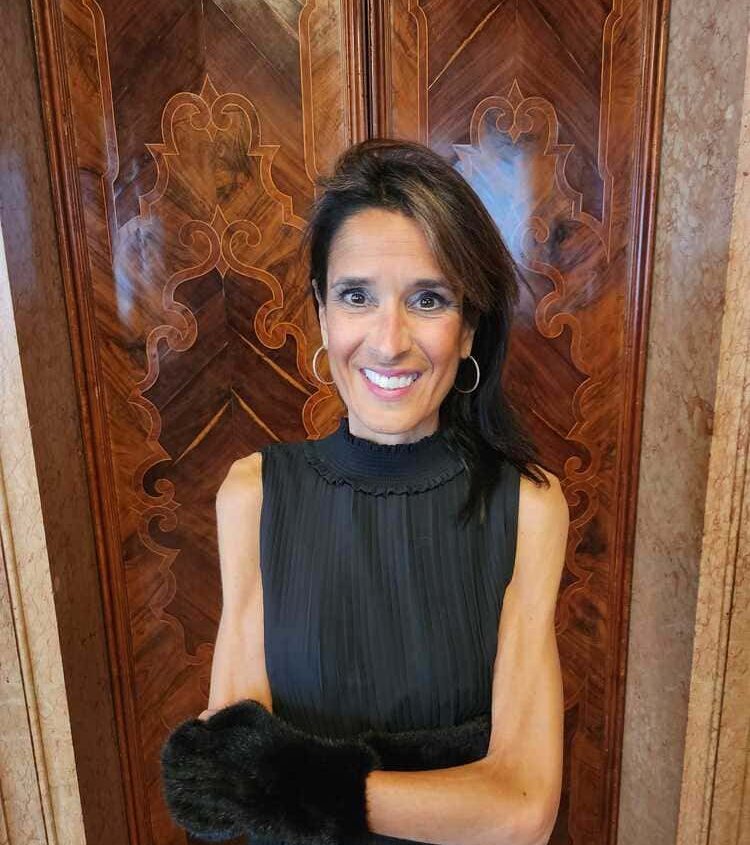
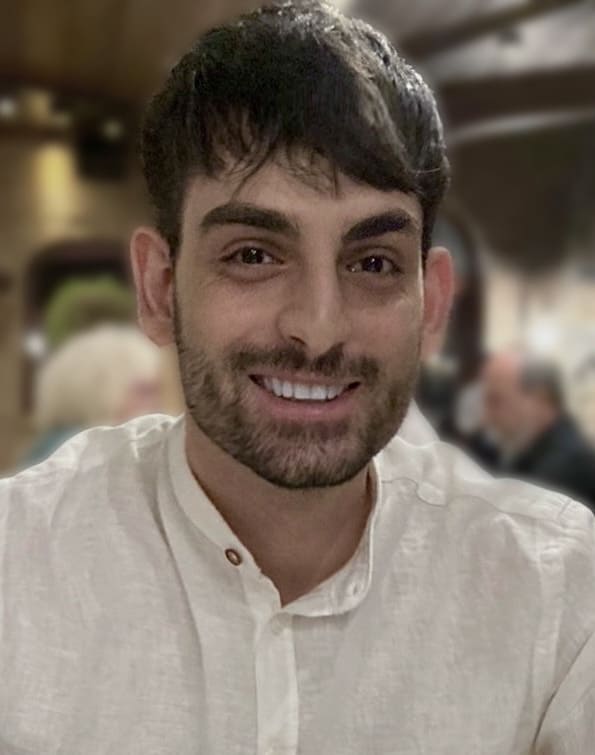
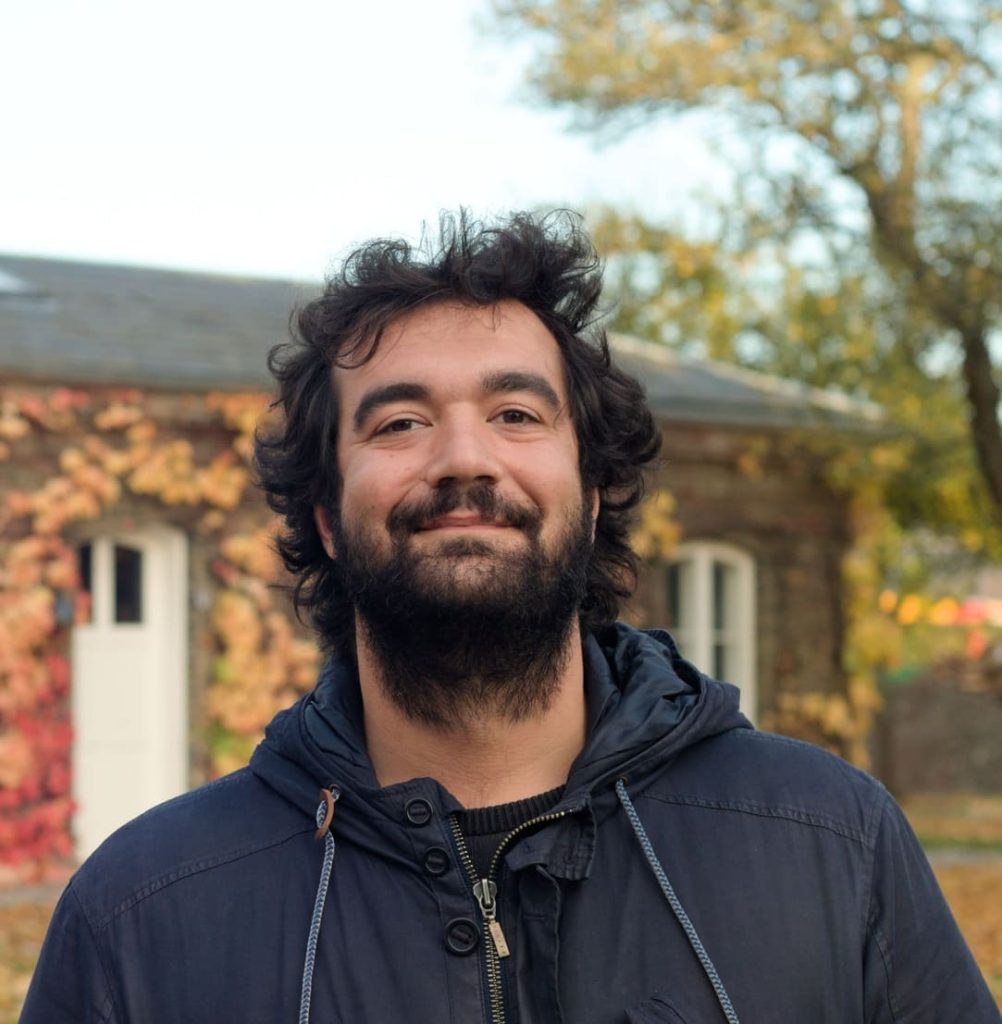
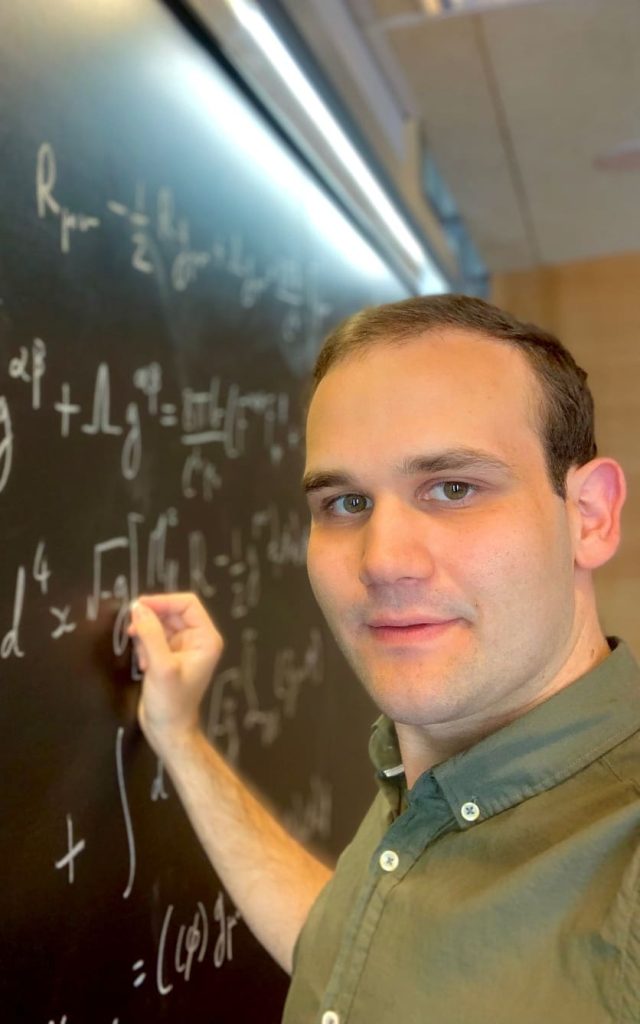
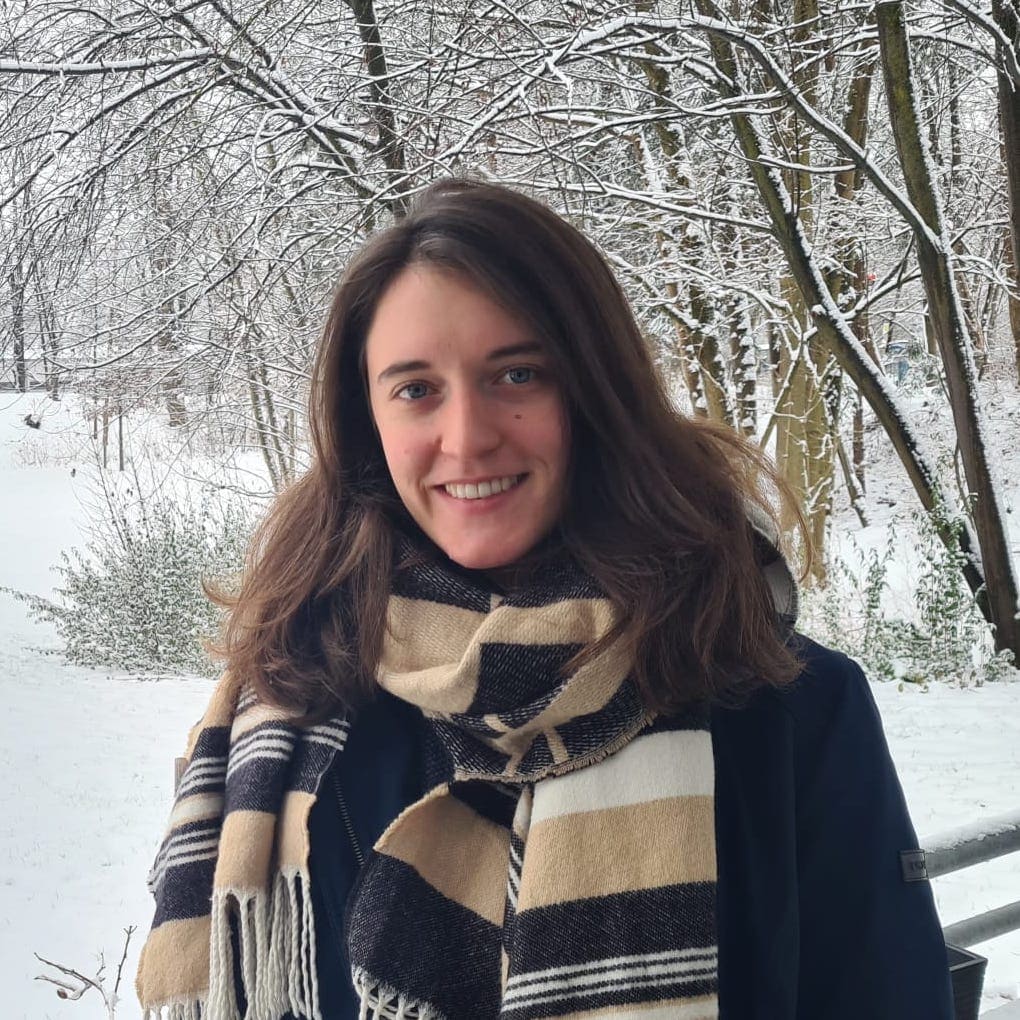
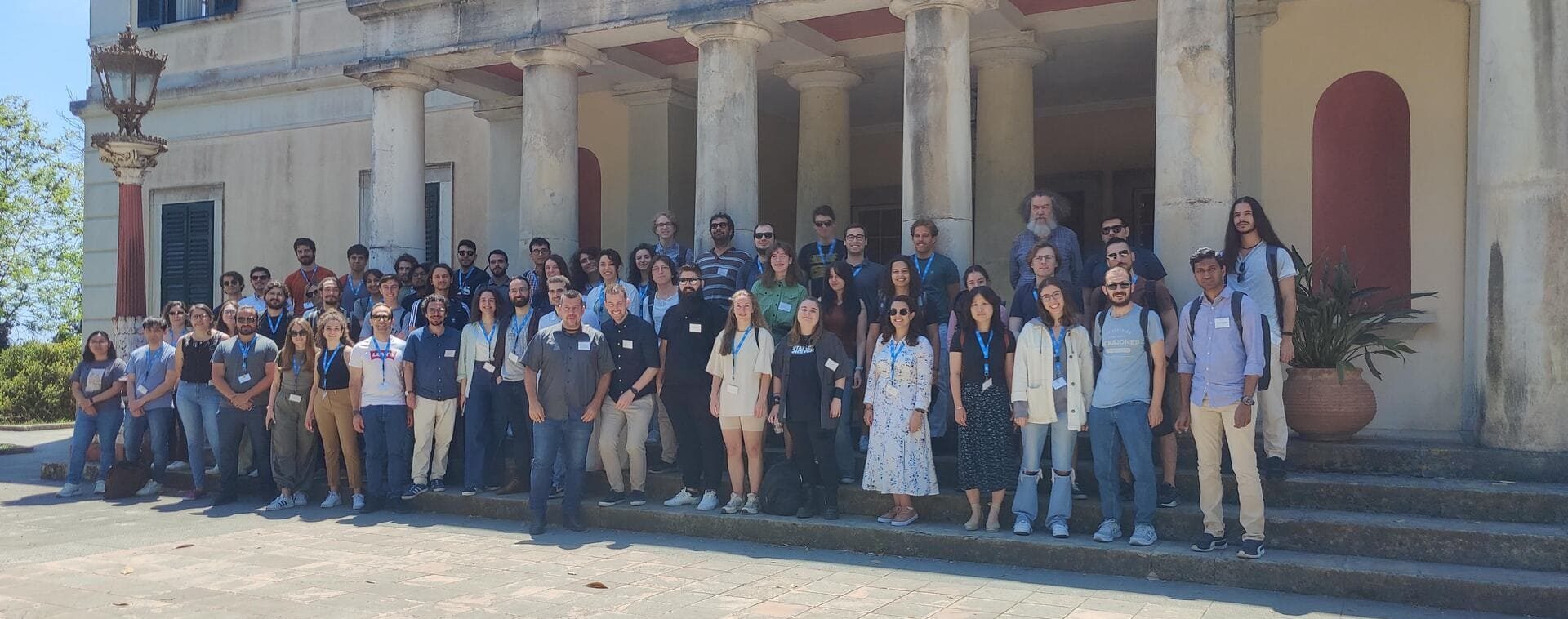
Tentative schedule
| 13 May | 14 May | 15 May | 16 May | 17 May | 18 May | |
| 9:30-12:30 (including 30mins break) | Laura Herold: From ΛCDM to Early Dark Energy | Laura Herold: From ΛCDM to Early Dark Energy | Olga Mena: Neutrino cosmology | Olga Mena: Neutrino cosmology | Jürgen Mifsud: Data-driven cosmology | Jürgen Mifsud: Data-driven cosmology |
| 16:00-19:00 (including 30mins break) | Matteo Martinelli: Model independent deviations from General Relativity: theory and phenomenology | Matteo Martinelli: Model independent deviations from General Relativity: theory and phenomenology | William Giarè: (Inflationary) Cosmology: from theory to data analysis. | William Giarè: (Inflationary) Cosmology: from theory to data analysis. |
Social activities
13 May 20:00 – 23:00
Welcome drinks and finger food at Mon Repos Palace
15 May 14:00 – 19:00
Boat Excursion with on-board meal
16 May 21:00 – 00:00
Conference Dinner/Greek night at Trypas traditional restaurant
CosmoVerse
Our understanding of the Universe is at a turning point with the predictions of the standard model of cosmology (or concordance model) and the observations from different surveys are showing tensions in several key areas. The disagreement is expressed in the value of cosmic expansion as well as in the growth of large-scale structure in the Universe. New cosmological surveys, many of which are European, may expose tension in additional areas of the concordance model. The question of cosmological tensions can be confronted in a number of ways. Firstly, survey data needs to be further analyzed for potential systematic uncertainties or biases. It would also be interesting to explore predictions from possible combined survey data, which is something survey collaborations cannot normally explore. Secondly, there have been numerous advances in approaches to data analysis and statistical approaches, some of which provide less dependence on cosmological models to make cosmological parameter estimates. Lastly, there are a plethora of new proposals from fundamental physics which range from novel neutrino physics to dark energy proposals (and others) which may contribute to a solution to the cosmological tensions problem. These represent the three research themes through which cosmological tensions will either be alleviated or resolved.
The main aim of CosmoVerse (cosmoversetensions.eu) is to establish a synergy between these research areas and foster a sustainable network based on interdisciplinary research in order to confront the growing challenges of tensions in cosmological survey data. CosmoVerse will take a harmonized approach involving all key communities.
SOC
Jackson Levi Said (University of Malta, MT)
Eleonora Di Valentino (Sheffield University, UK)
Noemi Frusciante (UNINA, IT)
Agnieszka Pollo (National Center for Nuclear Research, PL)
Radoslaw Wojtak (Niels Bohr Institute Dark, DK )
LOC
Emmanuel N. Saridakis (National Observatory of Athens)
George Zoupanos (National Technical University of Athens)
Leandros Perivolaropoulos (University of Ioannina)
Participants
| First Name | Last Name | Affiliation | Affiliation Country | Talk Title |
| Mariam | Abdelaziz | Scuola Superiore Meridionale | Italy | |
| Anna Chiara | Alfano | Scuola Superiore Meridionale | Italy | |
| Mariana | Azevedo Fernandes de Melo e Sousa | Centro de Astrofísica da Universidade do Porto (CAUP/FCUP) | Portugal | |
| Athanasios | Bakopoulos | National Technical university of Athens | Greece | |
| Joya Maria | Boulos | University of Padova | Italy | |
| Nikos | Chatzifotis | National Technical University of Athens | Greece | Thermodynamics of black holes featuring primary scalar hair |
| Ilim Irfan | Cimdiker | University of Szczecin | Poland | |
| Vitor | da Fonseca | |||
| Chiara | De Leo | Università La Sapienza di Roma | Italy | |
| Nicola | Deiosso | CIEMAT | Spain | Cosmological Constraints combining Observational Data with DESI DR1 BAO data |
| Kostas | Dialektopoulos | Transilvania University of Brasov | Romania | |
| Elisa | Fazzari | Sapienza University of Rome | Italy | |
| Matteo | Forconi | La Sapienza University | Italy | High-Redshift Galaxies: JWST’s Impact on Dark Energy |
| Serena | Gambino | Scuola Superiore Meridionale, Naples | Italy | |
| Mina | Ghodsi Yengejeh | Konkoly Observatory | Hungary | |
| Mahdieh | Gol Bashmani Moghadam | Brock University | Canada | |
| John | Grossman | Michigan Technological University | USA | |
| Rasmi | Hajjar | IFIC (CSIC-UV) | Spain | |
| Nayeli Marisol | Jimenez Cruz | Swansea University | UK | |
| Laura | Leuzzi | University of Bologna | Italy | |
| Jad | Mansour | Tartu Observatory | Estonia | |
| Simão | Marques Nunes | Faculdade de Ciências da Universidade de Lisboa | Portugal | |
| Tommaso | Moretti | Università degli studi di Napoli Federico II, dipartimento di fisica | Italy | |
| Edward | Olex | Departamento de Física Teórica, Facultad de Ciencias, Universidad Autónoma de Madrid | Spain | HINORA, a method for detecting ring-like structures in 3D point distributions I: application to the Local Volume Galaxy catalogue |
| Annamalai | P. Shanmugaraj | University of Southern Denmark | Denmark | Beyond Geometric Optics |
| Luis | Padilla | |||
| Evangelos Achilleas | Paraskevas | university of Ioannina | Greece | |
| Ami | Patel | |||
| Davide | Pedrotti | TIFPA-INFN Università di Trento | Italy | |
| Jose | Perdiguero | Universidad de Valencia | Spain | |
| Maria | Petronikolou | National Technical University of Athens, SAMPS | Greece | Alleviating the H0 Tension in Scalar–Tensor and Bi-Scalar–Tensor Theories |
| Samuel | Pinto | FCUP | Portugal | |
| Miguel | Pinto | Institute of Astrophysics and Space Sciences / University of Lisbon | Portugal | |
| Lorenzo | Pisani | Dublin City University | Ireland | |
| Marcin | Postolak | University of Wroclaw | Poland | Energy conditions and the separation between baryonic and dark matter in scalar-tensor cosmology |
| Adèle | Poudou | LUPM | France | |
| Matthildi | Raftogianni | University of Patras | Greece | |
| Massimiliano | Romanello | Università di Bologna | Italy | On the Tomographic Angular Cluster Clustering as a Cosmological Probe |
| Kathleen | Sammut | Masters of Science in Space Sciences and Astronomy in the University of Malta | Malta | |
| Teresa | Sicignano | Scuola Superiore Meridionale & INAF – Osservatorio Astronomico di Capodimonte | Italy | The distance scale of Type II Cepheids from near-infrared observations in the Magellanic Clouds |
| Salvatore Samuele | Sirletti | University of Ferrara and University of Trento | Italy | The importance of the Cosmic Birefringence in the fate of Cosmology |
| Stelios | Stefas | Greece | ||
| Petar | Suman | University of Cambridge, DAMTP | United Kingdom | |
| Elena | Tomasetti | University of Bologna | Italy | |
| Tegze | Tordai | |||
| Nikolaos | Triantafyllou | Scuola Normale Superiore | Italy | |
| Alexandros | Tsouros | Institute for Astrophysics – FORTH | Greece | Using Information Theory to Trace Ultra-High Energy Cosmic Rays to their Sources |
| Charalampos | Tzerefos | University of Athens | Greece | Probing gravity via primordial black holes |
| Alessandro | Vadalà | INAF – Astronomical Observatory of Rome | Italy | |
| Alena | Vanžurová | Department of Theoretical Physics and Astrophysics, Masaryk University | Czechia | |
| Amresh | Verma | Ariel University | Israel | Constraining Reheating Era With NANOGrav |
| Hayden | Zammit | University of Malta | Malta | |
| Ziyang | Zheng | Institut für Theoretische Physik, Universität Heidelberg | Germany | Model-independent test of modified gravity |
| Julia | Ziegler | University of Hamburg | Germany |
Accommodation suggestions
All participants are expected to make their own hotel arrangements, contacting directly the hotel of their choice, mentioning that they are participants of CORFU2024 Conference. Each hotel follows different booking policies on extra changes and reservation prepayment. Please note the below prices are indicative.
Please beware of spammers!! Anyone contacting you should be considered as self-invited.
In case you have difficulty booking your accommodation, you may consider contacting DAFNIS FIRST TRAVEL mentioning that you are a participant of the CORFU 2024 Conference, via email: or Tel: +30 26610 022005.
Arion Hotel (★★★)
www.arioncorfu.gr
6, Sxerias Av.| Corfu Town, Corfu | GR – 49100
Tel Number: +30 26610 37950| Fax Number: +30 26610 37951
Email address:
350m from the Mon Repos Conference Hall (3 min. walking distance)
| Room Type | May |
| Single room (balcony) | 75.00 € |
| Double room | 90.00 € |
| Triple room | 100.00 € |
Ariti Hotel (★★★★)
www.aritihotel.com
41 Nafsikas str | Kanoni Area | Corfu Town, Corfu | GR – 49100
1,8 km from the Mon Repos Conference Hall (20 min. walking distance, 7 min by bus)
| May 10 – May 31 | Aug 20 – Sep 9 | Sep 8 – Sep 25 | ||
| Single Room | 130€ | 150€ | 135€ | |
| Double Room | 130€ | 150€ | 135€ | |
| Above rates are per room, per night and include breakfast. | ||||
Corfu Divani Palace Hotel(★★★★)
Website: divanicorfuhotel.com
Address: 20 Nafsikas str.|Kanoni Area|Corfu Town, Corfu|GR-49100
1,2 km from the Mon Repos Conference Hall (14 min. walking distance, 4 min by bus)
| May | August | September | |
| Single Room/standard | 125,00€ | 195,00€ | 155,00€ |
| Double Room/standard | 140,00€ | 215,00€ | 190,00€ |
| Single Room/superior | 145,00€ | 215,00€ | 185,00€ |
| Double Room/superior | 165,00€ | 235,00€ | 215,00€ |
Corfu Holiday Palace (★★★★★)
Website: corfuholidaypalace.gr
Address: Nafsikas str. Kanoni Area | Corfu Town, Corfu | GR – 49100
1,8 km from the Mon Repos Conference Hall (20 min. walking distance, 7 min by bus)
| May | August | September | |
| Single Room | 120,00€ | 210,00€ | 170,00€ |
| Double Room | 150,00€ | 270,00€ | 200,00€ |
Mayor Mon Repos Palace (★★★★)
Website: www.mayormonrepospalace.com
Address: Dimokratias Av. & Iasonos Sosipatrou, 49100 Corfu
1km from the Mon Repos Conference Hall (10 min. walking distance)
| May 1-19 | May 20 – Jun 10 | Aug 28 – Sep 17 | Sep 18 – Oct 1 | |
| Single or Double city view | 115€ | 135€ | 210€ | 170€ |
| Single or Double side sea view | 130€ | 150€ | 230€ | 190€ |
| Single or Double sea view | 140€ | 160€ | 240€ | 200€ |
Royal Grand Hotel (★★★)
Website: royalgrandhotel.gr
Address: Palaiopolis 110| 49100 Kanoni Corfu| Greece
2km from the Mon Repos Conference Hall (25 min. walking distance, 7min by bus)
| May 5-15 | May 16-Jun 5 | Aug 26 – Sep 25 | |
| Single/inland view | 55€ | 60€ | 70€ |
| Double/inland view | 65€ | 70€ | 80€ |
| Single/side sea view | 65€ | 70€ | 80€ |
| Double/side sea view | 75€ | 80€ | 95€ |
| Single/sea view | 75€ | 80€ | 90€ |
| Double/sea view | 85€ | 90€ | 105€ |
